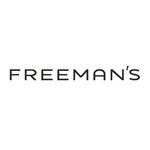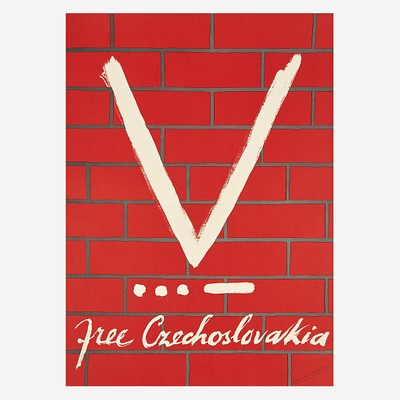[Presidential] [Churchill, Winston] Kennedy, John F. Typed Draft Letter, annotated
About Seller
2400 Market St
Philadelphia, PA 19147
United States
Established in 1805, Freeman’s Auction House holds tradition close, with a progressive mind-set towards marketing and promotion, along with access to a team of top experts in the auction business. And now with offices in New England, the Southeast, and on the West Coast, it has never been easier to ...Read more
Two ways to bid:
- Leave a max absentee bid and the platform will bid on your behalf up to your maximum bid during the live auction.
- Bid live during the auction and your bids will be submitted real-time to the auctioneer.
Bid Increments
| Price | Bid Increment |
|---|---|
| $0 | $25 |
| $500 | $50 |
| $1,000 | $100 |
| $2,000 | $200 |
| $3,000 | $250 |
| $5,000 | $500 |
| $10,000 | $1,000 |
| $20,000 | $2,000 |
| $30,000 | $2,500 |
| $50,000 | $5,000 |
| $100,000 | $10,000 |
About Auction
May 20, 2021
A collection of books and manuscripts. Curated by Darren WInston, Head of the Books and Manuscripts Department at Freeman's. Freeman's info@freemansauction.com
- Lot Description
A unique draft letter, reflecting President Kennedy's intellect, personality, and diplomatic skill
(Washington, D.C., ca. March 27, 1962). 1 p.; 10 3/8 x 7 1/8 in. (263 x 181 mm). Typed draft letter on White House stationery, to former British Prime Minister Winston Churchill, annotated by President John F. Kennedy, regarding the naming of an American Polaris nuclear submarine in Churchill's honor. In frame (15 1/2 x 12 1/4 in.; 394 x 311 mm).
In response to this letter, written to former British Prime Minister Winston Churchill by American President John F. Kennedy in March of 1962, the question of whether to accept the offer to name a Polaris nuclear submarine in his honor weighed heavily on him, as there was no simple answer. Churchill immediately wrote to then Prime Minister Harold Macmillan, seeking his council, while also expressing his willingness to accept, "I am much complimented by this suggestion, but the implications are obviously wider than the naming of a different type of ship." To accept would make him the first living person to have a United States naval vessel named for him, to refuse could lead to diplomatic tensions and possible embarrassment for both men and their countries. Macmillan voiced support for declining, and Lady Churchill also strongly opposed the idea, writing to Macmillan on April 4, 1962, "I should hate to feel that his name should be so closely associated with a weapon whose purpose is mass destruction. You yourself know what a humane man Winston is, and it seems to me utterly inappropriate." Macmillan suggested in a letter to Churchill that he could raise the matter with Kennedy himself later that month while on a visit to Washington, even suggesting the possibility of naming a ship after him that didn't carry such destructive capabilities. While the content of the conversation between Macmillan and Kennedy is unknown, it was ultimately decided that the idea would not be pursued any further. Thirty-three years later, President Bill Clinton announced that a new ship would be named after Churchill, the first destroyer--and the fourth ship--named after a British citizen.
This original draft letter from Kennedy to Churchill was typed for the President by Chief Warrant Officer, Jack E. Cutcomb, USN, of the Office of the Naval Aide to the President. The finished letter, dated March 27, 1962, is presumed to still be in the Churchill family's possession, and a copy of it is preserved in the British National Archives. This draft was preserved by Cutcomb.
Kennedy's annotations instruct Cutcomb to ammend sections of the first paragraph, changing the second sentence from "Polaris submarines are weapons for peace, a goal to which you have devoted your lifetime of service." to "Polaris submarines are a most valuable source of strength against aggression and therefore their true purpose is peace, peace with freedom goals to which you have devoted your lifetime of service." At the end of this paragraph there is a quote by Sir Francis Bacon, next to which Kennedy has written a note to quote Churchill instead ("quote him"). One can read in the copy of the finished letter held in the British Archives Kennedy's choice of Churchill's own line, "Peace is our aim and strength is the only way of getting it..."
During his thirty-year Naval career, Jack Evans Cutcomb held every enlisted rank, all the way up to being commissioned a Chief Warrant Officer at the highest level (W-4), and was awarded the Legion of Merit. Like many of his peers, he was inspired to serve his country after the Japanese attack on Pearl Harbor, so he enlisted in the Navy, began his illustrious military career as a Yeoman, and quickly became known as an expert communicator. He served in The White House under three Presidents, beginning with Dwight D. Eisenhower in 1954, and then under Presidents Kennedy and Johnson. Under Kennedy, CWO Cutcomb managed the Office of the Naval Aide to the President, and was frequently engaged in regular liaisons with high-level Naval and Marine Corps commanders. In his retirement remarks he said, "Only the Navy could have provided those opportunities to view the unfolding of history from a privileged position. I did. I'm grateful."
- Shipping Info
-
No lot may be removed from Freeman’s premises until the buyer has paid in full the purchase price therefor including Buyer’s Premium or has satisfied such terms that Freeman’s, in its sole discretion, shall require. Subject to the foregoing, all Property shall be paid for and removed by the buyer at his/ her expense within ten (10) days of sale and, if not so removed, may be sold by Freeman’s, or sent by Freeman’s to a third-party storage facility, at the sole risk and charge of the buyer(s), and Freeman’s may prohibit the buyer from participating, directly or indirectly, as a bidder or buyer in any future sale or sales. In addition to other remedies available to Freeman’s by law, Freeman’s reserves the right to impose a late charge of 1.5% per month of the total purchase price on any balance remaining ten (10) days after the day of sale. If Property is not removed by the buyer within ten (10) days, a handling charge of 2% of the total purchase price per month from the tenth day after the sale until removal by the buyer shall be payable to Freeman’s by the buyer. Freeman’s will not be responsible for any loss, damage, theft, or otherwise responsible for any goods left in Freeman’s possession after ten (10) days. If the foregoing conditions or any applicable provisions of law are not complied with, in addition to other remedies available to Freeman’s and the Consignor (including without limitation the right to hold the buyer(s) liable for the bid price) Freeman’s, at its option, may either cancel the sale, retaining as liquidated damages all payments made by the buyer(s), or resell the property. In such event, the buyer(s) shall remain liable for any deficiency in the original purchase price and will also be responsible for all costs, including warehousing, the expense of the ultimate sale, and Freeman’s commission at its regular rates together with all related and incidental charges, including legal fees. Payment is a precondition to removal. Payment shall be by cash, certified check or similar bank draft, or any other method approved by Freeman’s. Checks will not be deemed to constitute payment until cleared. Any exceptions must be made upon Freeman’s written approval of credit prior to sale. In addition, a defaulting buyer will be deemed to have granted and assigned to Freeman’s, a continuing security interest of first priority in any property or money of, or owing to such buyer in Freeman’s possession, and Freeman’s may retain and apply such property or money as collateral security for the obligations due to Freeman’s. Freeman’s shall have all of the rights accorded a secured party under the Pennsylvania Uniform Commercial Code.
-
- Buyer's Premium



 EUR
EUR CAD
CAD AUD
AUD GBP
GBP MXN
MXN HKD
HKD CNY
CNY MYR
MYR SEK
SEK SGD
SGD CHF
CHF THB
THB![[Presidential] [Churchill, Winston] Kennedy, John F. Typed Draft Letter, annotated](https://s1.img.bidsquare.com/item/l/8359/8359667.jpeg?t=1LBQMT)
![[Presidential] [Churchill, Winston] Kennedy, John F. Typed Draft Letter, annotated](https://s1.img.bidsquare.com/item/s/8359/8359667.jpeg?t=1LBQMT)










